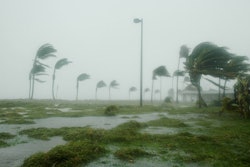 Photo: nourishinggrace.com
Photo: nourishinggrace.comWeeds have been the bane of gardeners – not to mention lawn-maintenance professionals – since time immemorial. But here’s something you may not know: Several varieties of weeds provide benefits to a landscape, from attracting pollinators to repelling pests, from filling salad bowls to fertilizing soil.
According to BobVila.com, gardeners should spare the spade on the following weeds:
- Dandelions attract pollinators such as honeybees and repel some pests, including armyworms. Plus, the edible young leaves and flowers are a nutritious addition to salads.
- Ragweed, because it’s often confused with a notorious allergen, has gotten a bad rap that is undeserved. Its colorful blooms attract pollinators like butterflies and honeybees, which can mean a better harvest for vegetable gardens.
- Clover, meanwhile, because of its ability to pull nitrogen from the air and release it into the soil through its roots, is especially beneficial for gardens and yards with poor soil.
- Wild violets, though dainty in appearance, are a hardy species that can withstand drought and spread as ground cover in areas too shady for grass to thrive.
- One ounce of stinging nettle leaves can be prepared into an effective garden fertilizer when steeped in a cup of boiling water for 30 minutes.
- The tiny flowers of ground ivy, or wild mint, make a cheery ground cover that doubles as a pest repellant.
- Although humans cannot consume vetch, it’s a good fertilizer that vegetables love.
- Add purslane, a nutritious leafy vegetable to your list of edible plants, or use it as a ground cover, where it breaks up hard soil and helps stabilize soil moisture.









